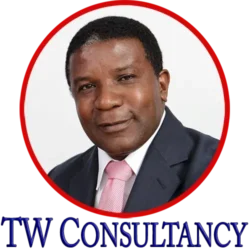Last week’s MPC committee witnessed the widest vote split since 2011, with three out of the eight economists on the MPC voting to increase interest rates by a quarter of a per cent. Bank of England Governor, Mark Carney voted against a rise, a position he defended in his Mansion House speech on Tuesday.
A shift in economic mood
Just a day later, however, and in a surprising turn, Bank of England Chief Economist, Andy Haldane proclaimed that he may vote for a rate rise later this year. It’s a statement that was somewhat lost in the mire of Brexit and the Queen’s Speech, but with many UK households heavily indebted with little or no savings, a change in bank rates after such a prolonged period of historic lows, could signal a significant change and hit consumers just as the economy has slowed.
On the basis that both the Governor and the Chief Economist have sight of the same economic data, why should one choose to twist and one to stand at this stage in the game?
Too much uncertainty ahead?
According to Carney, “now is not yet the time” for rates to rise. When we consider the political uncertainty surrounding the election result and the protracted negotiations to secure a deal between the Conservatives and the DUP, the opening of Brexit negotiations and the spate of tragedies across the country, you can’t help but see his point.
And it is this level of uncertainty and slow wage growth, it seems, that prevented Haldane for voting for an increase this time around. But with inflation clearly above the Bank’s 2% target, at 2.9%, the UK near full employment, the risk of deflation ebbing and the world economy more robust, Haldane’s argument for a gradual loosening of monetary policy, deserves consideration.
Dealing with above-target inflation
As we approach the point where inflation hits 1% above the Bank’s target, the requirement for the Governor to write to the Chancellor with an explanation of what he’s going to do about it, it’s interesting to see the divergence in opinion between Governor and Chief Economist.
One area they do agree on is the weakness of wage growth. Although price inflation is rising, wage inflation is falling, driven by less unionisation, more flexible contracts, the rise in self-employment, and technology. For me, that indicates that the inflationary trend is not embedded, the economy is far from over-heating and the impetus for raising rates is not certain.
An interesting debate
To raise or not to raise is a judgement call. It is not unequivocally clear one way or the other, otherwise there would be no debate and the vote would be a unanimous 8-0. One thing is obvious – we are in uncertain times and it is unclear which way the UK economy will go in the coming months. Options for loosening economic stimulus other than increasing interest rates, such as reducing its £435bn of government bonds and £10bn of corporate bonds, should also be taken into consideration.
It isn’t clear whether Haldane will twist or stand when it comes down to the wire, but he has opened up an interesting debate with potential consequences for consumers, households and businesses across the UK.


